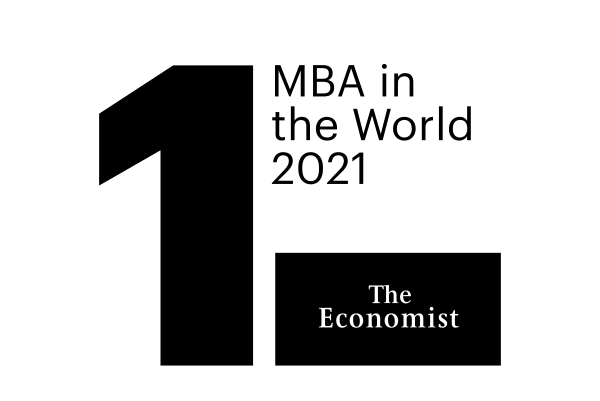Experience the Case Method
IESE GEMBA. What Will You Learn?
The Global Executive MBA is a unique international experience, taking you to global business hubs in the U.S., Europe and Asia.
The program is made up of six core modules and the choice of two immersive electives to customize your learning experience. Its flexible format, which combines residential modules and distance learning, cements learning through a stimulating blend of experiential and action-oriented learning methodologies.
GEMBA program curriculum
The Global Executive MBA curriculum leverages experiential learning and action-oriented methodologies to bring the most critical global leadership issues into sharp focus. A practical off-campus business plan and an in-company project complement the academic core and give participants a unique hands-on platform to apply their newfound knowledge.
Six core modules: three Foundation modules and three Principal.
Each core module encompasses a series of courses on the essentials of global business, including leadership tenets, financial accounting, entrepreneurship and digital transformation.
Each core module comprises three phases:
- Preparation. Prepare for what’s ahead. Revitalize your knowledge and understanding or core business concepts.
- On-Campus. Explore concepts in the dynamic context of teamwork, case-based debate, lectures, and workshops on campus. Take further with company visit, events and guest lectures.
- Consolidation. Apply new concepts, share feedback and analysis, and collaborate on projects.
Start your journey. Master the essentials. Survey the global business panorama. Reflect on what it means to lead.
- Analysis of Business Problems
Facilitates in-depth analysis of complex business problems and decision-making grounded in six clearly defined steps: assessing the problem, defining decision-making criteria, identifying options, analyzing options and, finally, making a decision while weighing potential risks. Syllabus - Decision Analysis
Develops quantitative methods for decision analysis with diverse frameworks, including financial mathematics in project assessment, decision charts, probability theory and distribution, scenario analysis with probability quantification, Montecarlo simulation and stress tests.
Syllabus - Financial Accounting
Provides the tools to read and interpret core financial statements, and examines the subjective nature of key financials – which are often based on estimates – to help participants develop a critical eye and better evaluate their quality.
Syllabus - Leadership
Harnesses participants’ collective experiences as global managers to challenge existing frameworks and create new models of how to lead people and organizations. Syllabus - Managerial Communications
Introduces the theory of persuasion in various contexts, including presentations, talks and interpersonal relations.
Syllabus
Optimize your decision-making capacities. Boost your ability to lead in a diverse, multicultural context. Learn how to spot opportunity and view the world like an entrepreneur.
- Competition and Strategy
Introduces value creation, value capture and sustainability. Examines concepts and models to analyze competitive environments. Evaluates competitive strategies based on cost and differentiation advantages and approaches for breaking into new markets. Syllabus - The Digital Context
Explores how to anticipate the impact of digital technologies on business models, organizations, and industries and how to drive digital transformation.
Syllabus - Managerial Accounting
Focuses on management of working capital and the underlying operational necessities it generates. In-depth analysis of financial statements through ratios to evaluate overall corporate financial health. Complements financial statements with tools such as cash budgets and provisional financial statements. Presents solutions for financing working capital.
Syllabus - Marketing Management
Analyzes the cornerstones of marketing and sales, including product planning, market selection, distribution, price fixing and promotion. Examines the functional responsibilities of sales managers and interplay with the rest of the management team. Hones the skills, judgment, and values necessary for solid decision-making.
Syllabus - Managing Oneself
Explores the concepts of freedom and individual responsibility as they relate to personal leadership. Explores the foundations of personal excellence and the dilemmas, challenges and solutions that leadership presents in a changing and multicultural society.
Syllabus
Delve deeper into the macro-issues, from the global economy to leading in the digital age.
- Business Ethics
Explores the impact of corporate values, culture and ethical system on long-term success. Introduces tools and procedures to prevent and resolve critical issues such as corporate fraud and crime. Examines the pillars of corporate social responsibility and its strategic implementation.
Syllabus - Competing in Business Models
Provides a set of tools that help strategists design robust business models and anticipate actions and reactions of players that participate in the process of value creation and capture: competitors, suppliers, customers, and complementors. Analyzes the drivers of competitive interaction to better anticipate actions and reactions of competitors, customers, suppliers and complementors.
Syllabus - Entrepreneurship
Employs a variety of proven methods and frameworks to allow students to assess their potential as entrepreneurs and intrapreneurs. It also how entrepreneurs generate new market opportunities in both newly established, high-growth companies, as well as consolidated firms. Reflects on the core challenges in the entrepreneurial process.
Syllabus - Industry 4.0
Explores Industry 4.0. and its implications in the manufacturing industry from the perspective of general management. Familiarizes participants with the hardware underlying this revolution, ranging from sensors, robots to factory automation and 3D printing.
Syllabus - Managing Operations
Explores strategies to create value and gain competitive advantage by optimizing your business operations. Imparts a global vision for service and industrial operations. Examines the basic variables, concepts, and tools that underpin operations, including process analysis, input/output curves, and line and inventory management.
Syllabus - Operational Finance
Explains economic analysis of operational decisions through differential costs, sensitivity analysis, calculation of indifference curves and break-even points. Examines decisions regarding production, product recalls, department closures, special discounts, acceptance of special orders, manufacturing, subcontracting and decision-making ability. Analyzes cost variance, transfer pricing design and implementation and management incentive systems.
Syllabus
Learn the essentials of effective talent management. Maximize your marketing operations. Enhance your skills at the negotiating table.
- Global Economics
Reviews the foundations of micro- and macroeconomics and specific market behaviors, including the inefficiency of monopolies and the problems caused by collusion. Examines the fallout stemming from issues such as public deficit, sustainability and public debt, unemployment, inflation and economic crises. Studies the impact of fiscal and monetary policies.
Syllabus - Human Resources Management
Analyzes decision making in the context of labor relations and human resources management. Focuses on labor relations management, the relationship between talent management and corporate strategy, and human resources policy and practice, with an emphasis on recruitment and selection, evaluation, professional development and compensation.
Syllabus - Management Control
Examines the broad spectrum of management control problems and the difference between the structure and process of management control. Presents appropriate tools and techniques for successful implementation.
Syllabus - Marketing Planning and Implementation
Analyzes sales management situations, accounting for time distribution, and the requisite human and monetary go-to-market resources. Reviews the core elements of communication policy: mission, market, message, media, budgeting and gauging success. Delves into the sales process and the policies and oversight necessary to manage a sales team.
Syllabus - Negotiation
Offers insights and proven strategies to enhance negotiating skills in a variety of complex scenarios.
Syllabus
- Design Thinking for Business Innovation.
Syllabus - Managing Digital Transformation
Building upon the IT module in Module 4, examines the digital economy in Silicon Valley. Analyzes real-life case studies of industries that have been transformed by technological advances and offers insights on evaluating the competitive landscape, challenging incumbents and identifying opportunities for newcomers.
Syllabus - Entrepreneurship: VC and Deals
This course offers a frontline view of how new companies are created in Silicon Valley and the role that venture capitalists play in this process. Real-life examples will shed light on how entrepreneurs and venture capitalist work together in order to create and grow companies.
Syllabus - Getting Things Done
Develop the skills to map out critical stakeholders and identify their needs for successful organizational cooperation, and assess the political landscape of organizations. Analyze strategies to successfully roll-out innovative initiatives given political constraints, and explore how social networks within and outside the firm can be developed and successfully leveraged for work effectiveness and career advancement.
Syllabus - Go Meet the Valley
Examines the Silicon Valley eco-system by analyzing the business models of the companies visited from a strategic and technological perspective and by analyzing the role that each of these companies plays in this eco-system.
Syllabus
Elevate your ability to lead in a global world. Better understand the ripple effect of globalization. Bolster your grasp of operational finance.
- Cross-Cultural Management
Examines the requisite cross-cultural skills to navigate an increasingly globalized business world.
Syllabus - Emerging Economies
Examines the globalization process and its impact on different economic agents. Studies the role of monetary policy, exchange rates and interest rates in world markets. Analyzes the causes and effects of international trade, and criteria for countries to restrict or regulate international trade.
Syllabus - Supply Chain Management
Considers value chain operations to promote corporate objectives and optimize resources. Examines manufacturing outsourcing, process technology, networks, flexibility, variability control, flow management, decentralized systems, supply chain coordination, service design and operations restructuring.
Syllabus - Global Strategy
Examines the impact of globalization on world markets. Presents a model for analyzing differences between countries, including the CAGE (Cultural, Administrative, Geographic and Economic) distance framework. Presents strategies for maximizing opportunity in a globalized context.
Syllabus - Corporate Finance
Analyzes the structure of company capital, long-term financing possibilities and dividend policies. Reviews the concepts of risk, profitability, diversification, market efficiency and liquidity. Examines the capital asset pricing model to estimate cost of capital and weighted average cost of capital. Assesses the value of projects, assets, and businesses using the discounted cash flow method, multiples, and real options models. Syllabus
Electives complement the core general management curriculum and offer you a chance to explore specific areas in greater depth in diverse global destinations. You will choose two 1-week elective modules. Electives will be delivered in strategic business hubs (cities to de confirmed).
In the final module, learning is consolidated, shared and embedded. The week culminates in the Global Executive MBA graduation ceremony, celebrated on IESE’s emblematic campus in Barcelona.
- Strategy & Sustainability
Increases awareness of the strategic sustainability issues so that you can potentially help your company respond to the issue in an appropriate way given its specific industry, geographic footprint, shareholder structure, etc.
Syllabus - Personal Finance
Provides tools to create and maintain a portfolio and successfully manage your savings, including a classification of the different kinds of securities and their principal role in a portfolio. Reviews financial products currently on the market and analyzes undervalued questions such as costs and retention periods. Examines strategies for creating and adapting your portfolio over time.
Syllabus
In-company Project (TFM)

During the last four months of the program, you will complete an in-company project where you will directly apply new approaches and concepts to an explicit business challenge. Working in teams with a sponsoring company, you will identify a real-life challenge and build an actionable plan to address it. Expert input from the company, senior executives and faculty will guide the experience.
Project examples
- Development of a social collaboration strategy
- Identifying and creating new markets
- Increasing production efficiency of a plant
- Analysis of a management cost system
- Development of a product launch strategy
Three Phases
Proposal and definition
During Phase 1, initial projects are proposed. Upon approval, assigned students and faculty develop the plans further.
Planning and completion
In Phase 2, a detailed project plan is submitted, followed by monitoring reports and a final report.
Evaluation and showcase
The best projects are selected and highlighted in a showcase event.
The Global Journey
Throughout the program, you’ll explore and develop a deep knowledge of skills and insights along four critical pathways.
Top international faculty
IESE’s faculty includes full-time and part time professors. All full-time professors have PhDs from prestigious universities. They are also highly international, representing more than 20 nationalities, and bring vast relevant expertise from the highest levels of business. Faculty members combine real-world experience with pioneering academic insights.
IESE professors have an “open-door” policy and provide you with invaluable mentoring and guidance. They cultivate rich exchanges of ideas that make the most of the combined experience in your classroom.
The Case Method at IESE
In 1963, Harvard Business School formed an alliance with IESE Business School and IESE adopted the famous HBS case method learning methodology. Over the years, IESE professors began writing their own cases, making their own impact and becoming thought leaders in their own right.
These are some examples of how the case method is applied in IESE:
- You will engage in dynamic discussions about the business challenges you face on a daily basis.
- You will combine individual learning, team discussions and dialogue in an interdisciplinary plenary session.
- The lecturer will facilitate and guide the debate, encouraging everyone’s participation to enrich the discussion with different points of view and experiences.
Read more about the case method and a few examples used in IESE classes of real cases from leading companies.


The IESE Experience
At IESE, you’ll be surrounded by talented peers, supported by a world-class faculty, and challenged by real-life business cases. We’ll put you to the test so that you can reach your full potential.
Discover the benefits of the IESE experience.
IESE Rankings.








